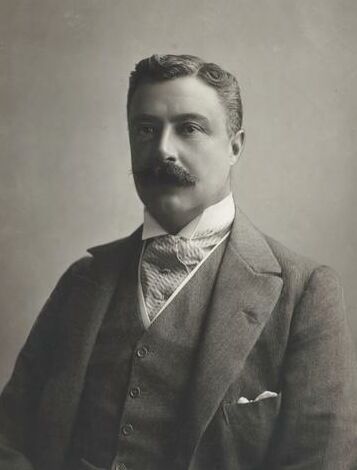- William Ward, 2nd Earl of Dudley
Infobox Governor-General | name=The Rt Hon. The Earl of Dudley,
GCB, GCMG, GCVO
order=4thGovernor-General of Australia
term_start=9 September 1908
term_end=31 July 1911
predecessor=The Lord Northcote
successor=The Lord Denman
birth_date=birth date|1867|5|25|df=y
birth_place=London ,United Kingdom
death_date=death date|1932|6|29|df=y
death_place=London ,United Kingdom
spouse=
profession=
religion=William Humble Ward, 2nd Earl of Dudley, GCB, GCMG, GCVO (
25 May 1867 –29 June 1932 ), styled Viscount Ednam before 1885, wasLord Lieutenant of Ireland and fourthGovernor-General of Australia .Ward was born in
London and was educated at Eton. His father died in 1885 and he inherited enormous wealth along with the Earldom of Dudley. He visited Australia in 1886–87 as part of a yachting cruise. Dudley became part of the social circle of the Prince of Wales (later King Edward VII), who attended his wedding to Rachel Gurney in 1891. He was active in the Conservative Party and held office in the 1895 government of Lord Salisbury.In 1902 Dudley was appointed
Lord Lieutenant of Ireland , in which post he displayed great extravagance but also some political and administrative ability. As a Conservative, Dudley could not have expected preferment from the Liberal government which came to office in 1905, but King Edward VII pressed the Prime Minister, Sir Henry Campbell-Bannerman to offer Dudley the post of Governor-General of Australia, and Campbell-Bannerman agreed, since there was apparently no suitable Liberal candidate available.Dudley arrived in
Sydney in September 1908, and soon established a reputation for pomp, ceremony and extravagance which was unwelcome to many Australians, particularly the Labor Party and the radical press such as "The Bulletin ". Not long after his arrival, he found himself swearing in a Labor cabinet underAndrew Fisher , so the Labor Party's disapproval of his vice-regal style became an important issue.The new Governor-General soon found himself involved in another controversy. It was part of Labor policy to establish an independent Australian navy. The Liberal opposition, on the other hand, supported the campaign for Australia to raise money to build ships for the
Royal Navy : the so-called Dreadnought campaign. So when Dudley made a speech in support of the Dreadnought campaign, he was straying into party politics, leading to a tense relationship with Fisher.In 1909 Fisher's minority government resigned, and Dudley refused him an early election. The Liberals returned to office under
Alfred Deakin , solving Dudley's immediate problems. But although Fisher was careful not to criticise Dudley in public, the Governor-General had acquired a reputation as "anti-Labor," which made him unpopular with half the Australian electorate.In April 1910 Labor won a sweeping election victory and Fisher returned to power. Relations between Governor-General and Prime Minister were soon once again frosty. Dudley's insistence on maintaining two very expensive Government Houses, in Sydney and
Melbourne , on travelling around the country in vice-regal pomp, and on chartering a steam-yacht to circumnavigate the continent, infuriated Fisher, a frugal Scottish socialist.By October Dudley had recognised the impossibility of his position and asked to be recalled. He left Australia in July 1911, unmarked by any official ceremony. Alfred Deakin wrote of him: cquote|"His ambition was high but his interests were short-lived … He did nothing really important, nothing thoroughly, nothing consistently … He remained … a very ineffective and not very popular figurehead"With the Liberals still in power in Britain, he held no further public office. He commanded a Yeomanry unit in Egypt and Gallipoli in the First World War, then retired to his estates. He married the actress
Gertie Millar , daughter of John Millar, on30 April 1924 , his first wife having drowned on26 June 1920 . Dudley died of cancer in London on29 June 1932 at age 65.References
*Chris Cunneen, ' [http://www.adb.online.anu.edu.au/biogs/A080371b.htm Dudley, second Earl of (1867 - 1932)] ', "
Australian Dictionary of Biography ", Volume 8, MUP, 1981, pp 347-348.Additional sources listed by the "Australian Dictionary of Biography":
*"Dictionary of National Biography", 1931-40; 'High Court of Justice: Lady Dudley's Separation Allowance', "The Times" (London), 7 Nov 1918, p 2; 'Death of Lady Dudley', "Times" (London), 28 June 1920, p 16; 'Obituary: Lord Dudley', Times (London), 30 June 1932, p 16; C. Cunneen, The Role of the Governor-General in Australia 1901-1927 (Ph.D. thesis, Australian National University, 1973); Alfred Deakin papers, MS 1540/19/275 (National Library of Australia).
Wikimedia Foundation. 2010.
